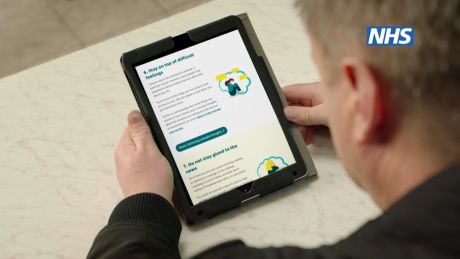The Every Mind Matters Campaign Can Help With Your Mental Wellbeing During COVID-19
The NHS and Public Health England’s campaign contains tools and advice to support your mental health

The COVID-19 pandemic has disrupted the lives of everyone in the UK, and with no clear idea of how and when it’s going to end, it’s little wonder that many of us are feeling anxious. That probably won’t come as a huge surprise to you – it’s only natural that people’s wellbeing is being affected by such a major crisis – but that doesn’t mean you should shrug it off. It’s vital to take steps to look after your mental health, and the Every Mind Matters campaign can help.
That’s what we wrote in mid-April when we first covered this mental health campaign from the NHS and Public Health England, and we find ourselves back in a similar position. The pandemic is still causing widespread disruption and Every Mind Matters can still help you to look after your mental wellbeing. It provides advice and tools to help support your mental health during this extraordinarily trying time. On the website you’ll find the Mind Plan tool, which starts with a quiz to create tailored support for you based on a few questions about your situation, along with specific advice tackling common problems like trouble sleeping and stress.
It takes a couple of minutes to complete the Mind Plan quiz, after which you’ll get some advice with videos to help you put that advice into practice, whether it’s practising guided breathing or tackling a home workout. And if a suggestion doesn’t hit home, you can swap it out for another one.
We’d urge everyone to visit the Every Mind Matters site and give the Mind Plan quiz a go at least, but if you want some general mental health advice right here and now, here’s NHS psychiatrist Dr Max Pemberton.
“For me, the most important thing is to have a routine, where you can break up your day into sections, and exercise,” says Pemberton. “There are so many programmes online and workouts you can do at home to keep your mind active. You must remember that throughout all this, you are not alone – speak to your family and friends. We will get through it and, with any luck, emerge from lockdown stronger than ever.”
Here are Pemberton’s top ten tips for supporting your mental wellbeing.
1. Our physical and mental wellbeing are related. Looking after your body will help you look after your mind. Physical activity can have an extremely positive effect on your mental wellbeing. Even if this means doing just a short workout at home, it can boost your mood.
Get the Coach Newsletter
Sign up for workout ideas, training advice, reviews of the latest gear and more.
See related
- Tips For Living With Roommates In A Tiny Flat During The Lockdown
- How The 4-7-8 Breathing Technique Can Help You Relax And Get To Sleep
- The Gut Health Doctor Explains How To Avoid Constipation Right Now
2. Managing your sleep well can benefit your mental wellbeing hugely. Not getting enough can affect concentration and reduce your energy levels, so make sure you try to keep regular sleep hours.
3. Take a deep breath. Slow, measured breathing is an effective way of relaxing your mind and switching off from the outside world.
4. Stay positive! The way we think, the way we feel and the way we behave are all linked. It might sound obvious but make a real effort to reframe unhelpful thoughts. Take a step back and see how you can think about things differently. When positive thinking becomes a habit, you will be happier and better prepared to handle the current situation.
5. Don’t be afraid to seek support! We all need help sometimes. Make sure you reach out to people around you if you begin to struggle. And if you think someone is struggling with their mental wellbeing then do reach out to them. Not only could you have a positive impact on their life, but this can also build your own emotional strength.
6. Learn something new. It’s important to do things that make you happy, perhaps a new hobby or skill that can take your mind off things. Setting goals can be a great way to build your self-esteem and feel a sense of achievement.
7. Create a routine. This is really important as life is changing and we need to adapt to our new living situation. Routine gives both children and adults an increased feeling of safety in the context of uncertainty, so maybe make a plan for the day that includes time for working, eating, relaxing, exercising.
8. Stick to mealtimes and bedtimes – this shouldn’t be too difficult if you’re working from home, but don’t be tempted to stay in bed or work longer hours. Eat at the times you usually would, as this can help you remain in your routine.
9. Plan for the down times. Everyone will feel different emotions because of what is going on, but it’s perfectly normal. Learn what helps you feel better – call a friend, listen to uplifting music or even have a hot bath to help you relax.
10. Keep your mind active. Read, write, play games, do crossword puzzles, sudokus, jigsaws or drawing, cooking and painting. Find something that works for you and be creative!

Nick Harris-Fry is a journalist who has been covering health and fitness since 2015. Nick is an avid runner, covering 70-110km a week, which gives him ample opportunity to test a wide range of running shoes and running gear. He is also the chief tester for fitness trackers and running watches, treadmills and exercise bikes, and workout headphones.
